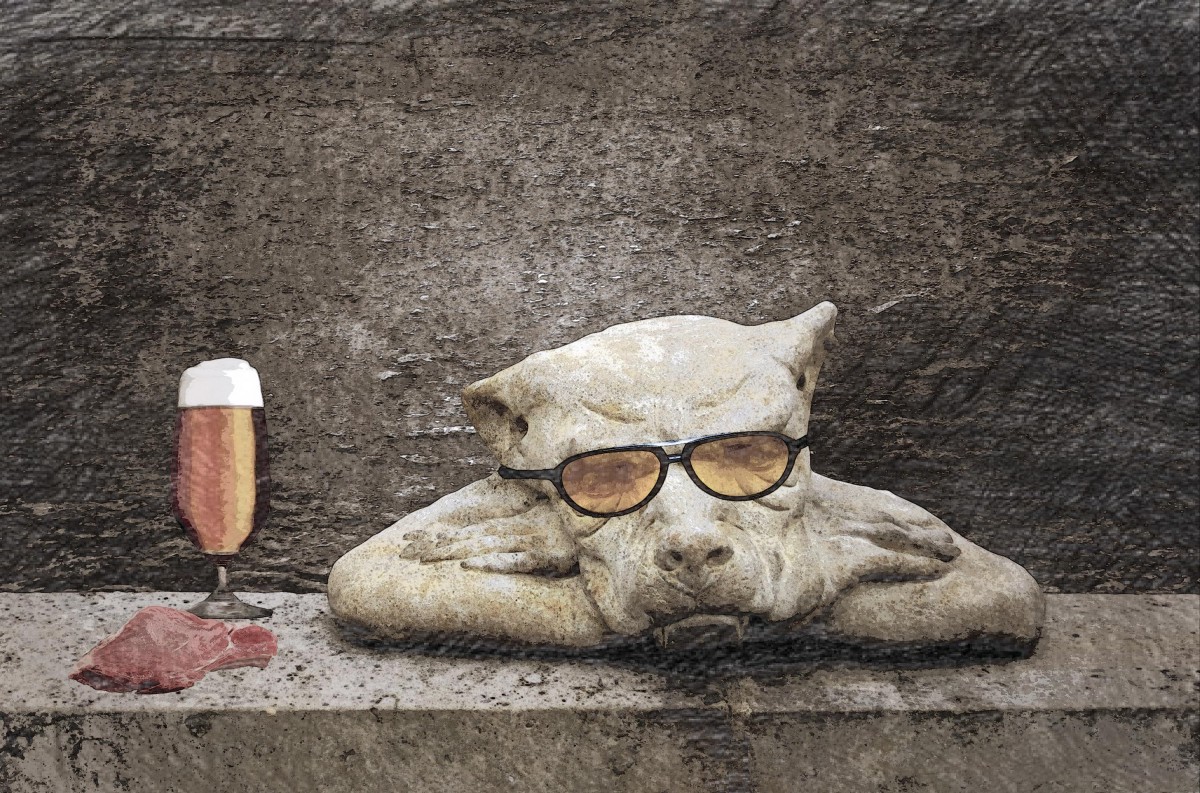
Aristotle: Man the social thinker
What is knowledge?
Like Plato, Aristotle recognised that knowledge is only knowledge if it is of something that is true.
This truth must be justified in a way which shows that it must be true. In other words, if we are to claim that we know something, then that something must be necessarily true.
Since physical particular, that is “beings” or “substances” can and do change, the objects of knowledge cannot be the particular, but must be of that which is universal. Therefore, to know something means to have grasped something of the universal.
When I know that “Lassie is a dog”, I know that this particular, perishable being, that is, Lassie, is a dog. However, in knowing that Lassie is a dog, I also know something about the dogness of Lassie, or those qualities that make Lassie a dog. When knowing the dogness of Lassie, I also know about those universal “dog” qualities that make any dog a dog.
I know that Lassie is a dog. However, should, and when, I meet Fido, Rin Tin Tin, Goofy, Pluto, Scooby Doo, or Snoopy, I will still know that they are dogs, because I recognise in them those universal “dog” qualities that give them their dogness.
The dogness which I found in Fido is also in the millions of other substances that have the form of dogness in common. This common form is called the commensurate universal; it is the essential nature, or essence, of something. In the case of dogs, this essence can be described as what-it-is-to-be-a-dog.
Aristotle differs from Plato in that he maintains that it is absolutely in the substance that this essence lies. There is nothing otherworldly about the forms.
Moreover, the senses do not hinder knowledge. On the contrary, it is through the senses that we begin to gain knowledge. By seeing and hearing Lassie, by seeing and hearing its dogness, I can immediately start to gain knowledge about Lassie’s essence. After sensory perception of something, we then attain genuine knowledge in the judgement that what we perceive has this particular form. Then, from repeated perceptions, experience is born. The judgements of experience are universal. Subsequently, while we receive objects through our senses, we understand the universal experience through what Aristotle calls the nous, or mind: rationality.
Man as a rational being
Different things have different characteristics. According to Aristotle, plants, for example, are distinguished from non-living things in that they have a nutritive principle. Animals have an instinctual principle, on top of that nutritive, marking their difference from plants.
Human beings share characteristics with other things. However, the rational principle is what sets them apart from others substances, even animals. We are able to carry out rationally formulated projects.
Rationality is our function (which Aristotle calls ergon). Our flourishing, our reaching eudaimonia, is therefore rational activity performed well, in accordance with virtue.
Man as a social being
Man is by nature a social animal; an individual who is unsocial naturally and not accidentally is either beneath our notice or more than human. Society is something that precedes the individual. Anyone who either cannot lead the common life or is so self-sufficient as not to need to, and therefore does not partake of society, is either a beast or a god.
Aristotle, Politics
Human beings are, by nature, part of a social group. Society allows us to gain knowledge and develop our potential. An unconnected life does not satisfy us. On the other hand, we find fulfilment in social connections, in friendships. We are naturally suited to life in a community and do not fully realise our natures until we exercise the role of citizen.
“We may even see in our travels how near and dear every man is to every other,” he says in the Nicomachean Ethics.
In his philosophical discussions of friendship, Aristotle identifies three kinds: friendships of pleasure, of utility, and of virtue.
The most complete type of friendship is the friendship of good people similar to each other in virtue. They are true, perfect friendships because they wish each other the same sort of good things. Friends of this sort do not see friendships as something to be exploited, but as something that is valuable in and of itself. Such people, Aristotle admits, are rare, making these types of relationships even rarer.